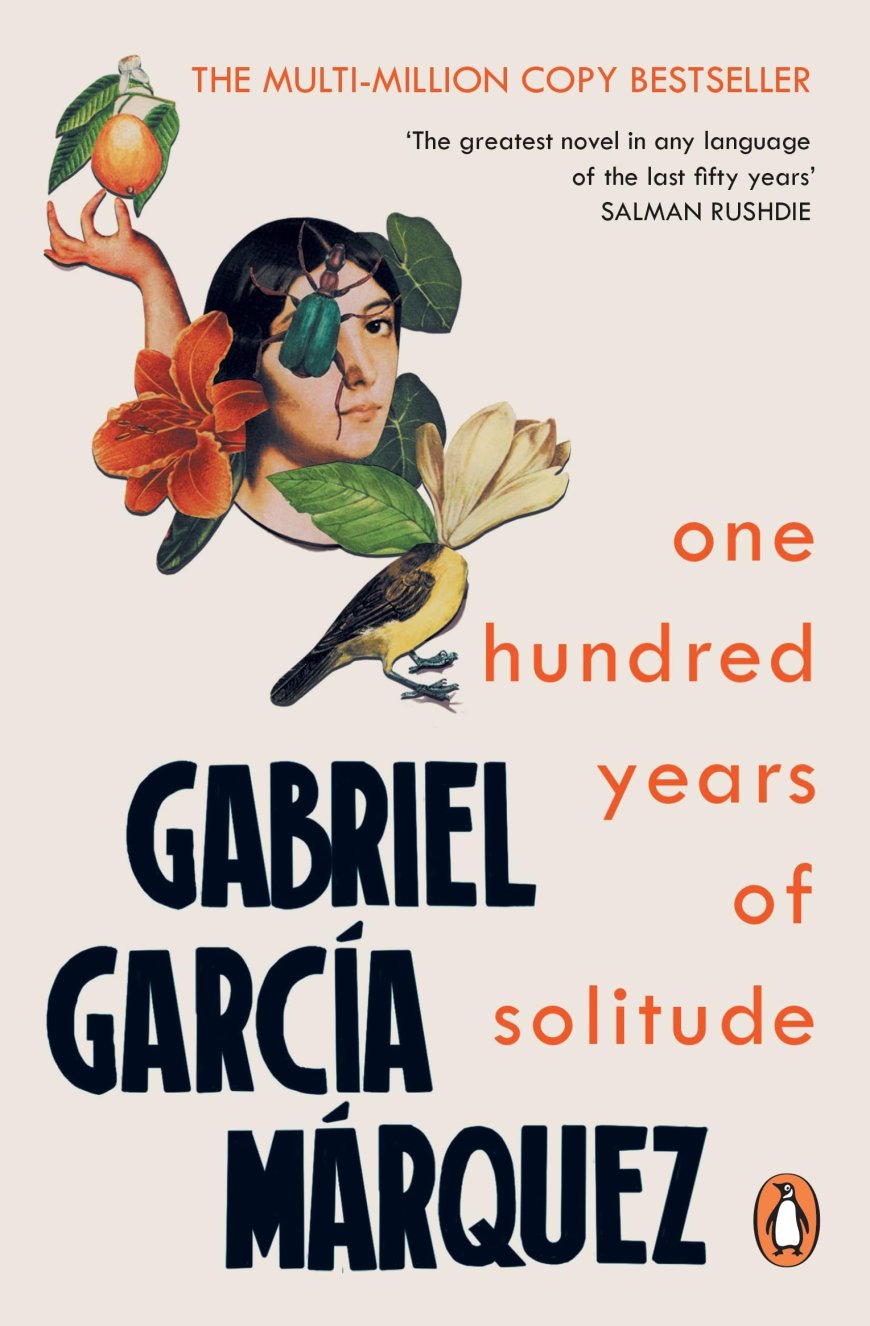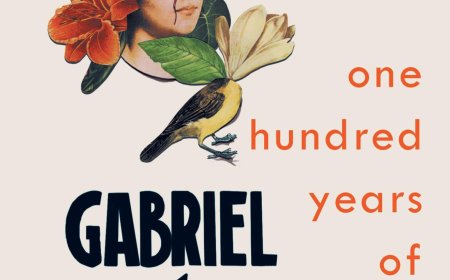One Hundred Years Of Solitude Novel By Gabriel García Márquez
One Hundred Years of Solitude is a 1967 novel by Colombian creator Gabriel García Márquez that recounts the multi-generational story of the Buendía family, whose patriarch, José Arcadio Buendía, established the town of Macondo. The novel is much of the time referred to as one of the preeminent accomplishments in world writing.

History of Latin America

In one sense, it is difficult to characterize this chapter as “History of Latin America” because there are so many different national histories within what we refer to as Latin America. Some countries have very little in common with each other culturally or linguistically, aside from sharing a language that most people speak.
There are also significant differences when it comes to how political systems function. For example, some nations have absolute monarchs who make all major decisions without any input or influence from others, while others operate under a representative democracy.
Still more differ when it comes to which groups get favored over others when it comes to getting access to resources such as education, healthcare, and employment. There are even regional variations where some cultures seem to be given preferential treatment over others.
With all these factors putting pressure on individual identities, it is not surprising that there has been a lot of diversity when it comes to defining what it means to be Latino, Hispanic, or American. Sometimes these terms are used interchangeably, but sometimes they do have distinct meanings depending on who is using them.
History of Colombia

After discussing some important historical figures in South America, including several famous people from Spain, like Christopher Columbus or Francisco de Orellana, this book focuses on one person who would go onto have an enormous impact not only in his home country, but also internationally.
Gabriel Garcia Marquez introduces us to his main character, Héctor Medios. He is twenty-two years old when we meet him, and he lives in Bucaramanga, which at that time was just a small town. But soon enough it will be known as the “Detroit” of Colombia, due to its rapidly growing economy fueled by mining.
Hector works as a night watchman for a large mine where there are significant safety concerns. This doesn't matter much though because he has never worked before and knows nothing about his job. What matters most to him is writing poetry, something he has been doing since childhood.
He dreams of being a great poet one day, and writes many poems himself, sometimes putting them into journals and then later editing and publishing them. Although he may not make a living off this career choice, he feels passionate about it.
History of the novel

The story of how we tell stories to understand our world is as important as any other field in literature. In this article, we will talk about some key developments in that history. What are known as “novels” come from an ancient literary form called the epic poem. These early novels were mostly accounts of heroic or mythological events, but they evolved into something more.
Gabriel Garcia Marquez is one of the most well-known writers in the Spanish language today. He is widely considered to be among the greatest authors ever written in his native country and abroad. Many people know his work for either his own writing or through popularization by publishers.
He is also famous for being an influential voice in Latin American fiction. His works have been described as magical realism, social commentary, and political satire. They have received numerous awards and recognitions, including multiple winner of the Nobel Prize for Literature.
Definition of solitude

According to Thesaurus.com, the term “solitude” can mean one or more of the following:
1) separation from others; 2) independence; 3) isolation; or 4) quietness
Separation is not the same as being alone, because you can be separate from people while still having connections with them. For example, if you are separated from your family due to moving away, you have still got connected.
Independence means going your own way without help or guidance from other people. This may include quitting a job, leaving town for an adventure, or starting something new.
Isolation implies spending time alone so that you do not interact with anyone else. It can also imply staying in bed all day, which is never a good idea!
Quietness refers to keeping what you say very simple, limited, and/or focused on just yourself.
It is important to know the difference between loneliness and solitude. While at times they can go together, too much of either will affect you negatively.
Drinking alcohol and doing drugs can make you feel lonely, but it is wrong to use such resources to avoid the word “lonely.” You should try to understand why you feel this way and work on solving these issues.
Surrounding yourself with people who make you unhappy or talking about things that matter to no one but you can add to the feeling of
What is happening in the story?

In this book, there are many stories that happen simultaneously. Some scenes occur quickly while others linger for longer than necessary. This happens because some parts of the narrative are told from third person point of view, whereas other chapters are exclusively narrated through either past or present tense.
At times it can be hard to keep up with everything that’s going on. There’t enough time to take notes, let alone make sense of them!
Fortunately, we have you to help us out. We will go over all of the important details of the novel when our hands-off period has ended. Until then, enjoy “Solitude” and try not to get too distracted.
Who are the characters?

A few months before his death, Gabo published an essay titled “The Message in The Novel” where he discussed what makes a great novel. He said that there must be a strong protagonist who people can relate to or sympathize with so that readers will invest their time in reading the book.
He also mentioned that the setting is essential for establishing context and adding color to the story. When writing his own books, he would spend hours researching various locations to include detail not only about the place but also about how it influenced those around it.
Lastly, he described some traits of a powerful narrative which make up the theme of the book. These include actions, dialogue, mood, and event structure. All these components work together to tell the tale, propel the plot, and create impact within the reader.
Gabriel Garcia Marquez was a prolific writer whose works have been translated into over 40 languages and made him one of the most well-known authors worldwide. His best known novels include Chronicle of a Summer and Ninety-nine Stories.
What happens next?

A week later, in another part of town, an old man is watching television when he sees a news story about a robbery that left one of the robbers dead. The police have found his wallet with some money, but no gun. They are looking for someone to charge him with murder.
The old man feels sorry for the robber’s family, but he cannot help thinking how many lives were ruined because this person lost control and shot somebody. That doesn’t seem right to him.
He decides to do something he has never done before. He calls the cops himself and tells them they are wrong. In fact, he says, the murderer is already outside their house waiting to be caught.
When the officers ask who told him this, the old man replies, “I did.” Then he hangs up the phone.
His grandson comes into the room to tell him there was a strange phone call downstairs. When he went down to check it out, he saw a stranger walking away from the house.
What is the theme?

The theme of this book is not about wars or revolutions, but rather life. Life in all its forms: personal, social, political, and economic. It is also about how to live your life and what the meaning of life is.
Gabriel Garcia Marquez weaves these ideas into his narrative throughout the entire book. He explores different aspects of life, from individual characters to societies and cultures, and the influence they have on each other.
He analyzes past civilizations and studies their concepts and ideologies. He compares them with those of today and looks at why some survive and others do not.
At the end of the book he addresses the question “what does it mean to be alive?” By defining this, he says, you will know how to make the most of your own life.
You can apply these lessons to your own life and to help others develop theirs — teaching people about how to lead meaningful lives and helping them find happiness.
Can you identify the themes in the novel?

There are many thematic elements in this book, but two major ones emerge: magic and life as an adventure. Magic is used to describe both characters’ actions and events, and there are several different types mentioned.
The main protagonist, José Arcadio Buendia, uses magical thinking to justify his selfish desire for power and wealth. He believes that through prayer he will be given knowledge and understanding of things beyond what we normally consider possible. This influence comes from God and thus is considered divine inspiration.
Another character, Octavio Montero, utilizes supernatural forces when trying to solve difficult problems. He often prays or calls upon saints to help him find the solution. Both of these examples show how important it is to use spirituality to inspire yourself.
This idea was beautifully portrayed in one scene where Aureliano Ambrosio, a young boy who has just been told about death, looks up at the sky with wonder. At that moment, he feels like something bigger than himself exists and everything around him is connected to it.
What's Your Reaction?





































